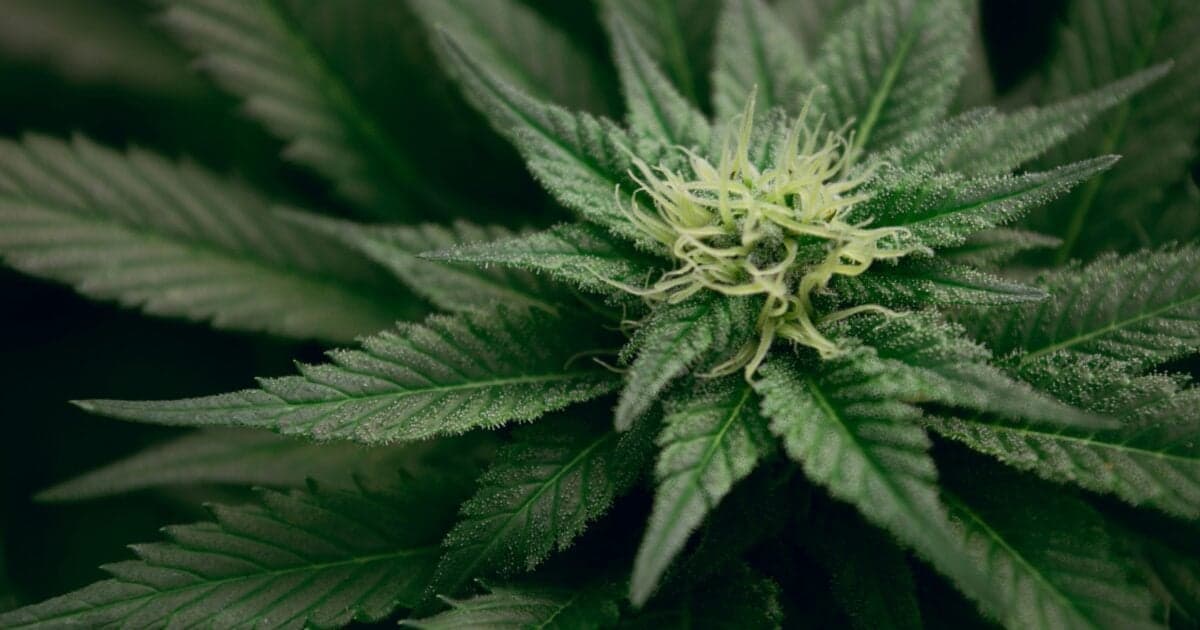Cannabis Stocks Surge After Trump Signals Possible Federal Rescheduling – What It Means for Investors

Cannabis stocks are rising on fresh regulatory intrigue...
On Friday, August 8, the Wall Street Journal reported that President Donald Trump is thinking about changing cannabis's federal classification. At a $1 million-a-plate fundraiser, he told attendees – including lobbyists – that he was interested in ranking it as a less dangerous substance.
Then, on Monday, Trump confirmed the chatter at a White House press conference. He said...
We're looking at reclassification and we'll make a determination over the next – I would say over the next few weeks, and that determination hopefully will be the right one.
It wasn't much. But in the policy-sensitive cannabis sector, even a crack in the door can move markets. The AdvisorShares Pure U.S. Cannabis Fund (MSOS) – which tracks a basket of cannabis-linked companies – closed 25% higher on the day.
So, is it worth investing in cannabis stocks right now? Let's cover the state of the market... what reclassifying cannabis would mean for investors... and what to look for as this story evolves.
A Brief History of Cannabis Regulation in the U.S.
First, cannabis was a common 19th-century medicinal ingredient in the U.S. Then, it was shunned as a prohibited substance in the 20th century... And now, it's tiptoeing through a patchwork of legalization in the 21st century.
The most serious federal restrictions began in 1937 with the Marihuana Tax Act. Eventually, cannabis was classified as a Schedule I drug under the 1970 Controlled Substances Act ("CSA"), which ranks drugs by their uses and dangers.
Schedule I drugs are believed to have no accepted medical benefit and the most potential for abuse. Cannabis is still considered a Schedule I substance today.
But since the '90s, we've seen a flood of state-level reforms. California's 1996 Compassionate Use Act allowed marijuana for medical purposes – and opened the door for more than 30 other states to follow suit. And ever since Colorado and Washington legalized recreational use in 2012, 20-plus states have set up adult-use markets.
State and federal policy are now at odds across the country. As a result, we have a multibillion-dollar industry that's still forced to operate under federal prohibition.
The cannabis sector has vast economic potential waiting to be unlocked. "Rescheduling" – or moving a drug to a different CSA classification – isn't the same as federal legalization. But it's an important step for these companies.
Why Federal Rescheduling Matters
Rescheduling cannabis isn't just bureaucratic housekeeping.
It could slash taxes for legal operations, loosen banking restrictions, and change how Wall Street values the sector – all without even fully legalizing cannabis nationwide.
The biggest benefit would be ending Section 280E of the tax code. This currently stops cannabis businesses from deducting ordinary expenses.
For example, a coffee shop can deduct costs like rent, payroll, and utilities from its taxable income... But under 280E, a cannabis dispensary cannot. That makes its effective tax rate much higher, even if the two businesses have similar revenues.
Analysts estimate that this tax restriction alone costs U.S. cannabis retailers more than $2 billion a year.
Rescheduling could also encourage more banks and insurers to work with cannabis companies. Right now, financial firms avoid them, largely because of legal risks.
It's important to remember that without federal legalization, rescheduling wouldn't change everything. State-by-state rules would remain, for one thing. Interstate commerce could still be barred. In other words, while the tax and banking picture could shift dramatically, the broader regulatory framework would remain fragmented.
That's why understanding the rescheduling process is critical...
The Rescheduling Process Explained
Right now, cannabis sits alongside hard drugs like LSD and heroin in Schedule I. Moving it to Schedule III would put it in the same category as Tylenol with codeine, and testosterone supplements – both of which have accepted medical uses and lower abuse risk.
Two agencies drive the rescheduling process:
- The Department of Health and Human Services ("HHS") issues a medical and scientific recommendation on cannabis' potential for abuse and medical use.
- The Drug Enforcement Agency ("DEA") makes a final scheduling decision.
The current rescheduling push began under former President Joe Biden. In late 2023, HHS formally recommended moving cannabis to Schedule III. But the DEA has yet to issue a final decision.
Since January 2025, the process has largely stalled. No formal rulemaking notice has yet been published. And we have no timeline from here.
If the DEA agrees with HHS on Schedule III, it must still initiate rulemaking. That is, it needs to propose the change, take public comment, review feedback, and issue a final rule.
Even then, advocates can expect legal challenges – possibly all the way to the Supreme Court.
The process has been in motion since late 2022, when Biden first told the HHS and DEA to consider rescheduling cannabis... But for much of 2025, it has been stuck in limbo.
Bottom line: No one knows when this change might happen. That's a big source of uncertainty for investors.
What to Know About Cannabis Stocks as an Investment Class
Retail investors may be surprised to learn that several cannabis-linked companies are publicly traded.
Cannabis companies still face restrictions on listing directly on U.S. exchanges. So U.S.-focused businesses often list on Canadian exchanges or trade over the counter. Some related service providers may list on major U.S. exchanges.
So, it's perfectly legal for U.S. investors to buy cannabis stocks. But how well they perform is another matter...
This sector has been volatile. And it's easy to see why. The whole industry can heat up quickly on policy momentum... or go back on ice if reforms stall.
The chart below paints the picture. It shows how MSOS – a widely watched benchmark for cannabis stocks – surged in late 2022 on legalization optimism... then fell sharply as legislative hopes stalled.
Pull up the price chart of any cannabis stock and you will likely see similar trends.
If you're thinking about investing in the sector, take note. Given the current uncertainty, cannabis stocks are definitely not for the risk-averse.
But that doesn't mean there aren't interesting opportunities.
To profit, you need to understand which parts of the value chain are most resilient and best positioned to benefit from incremental policy changes. Let's take a look...
Unexpected Cannabis Opportunities With Big Upside
In major policy shifts, the most consistent early winners are often the suppliers... not the core operators.
Cannabis is no exception. You might think the obvious move is to buy the businesses that grow and sell cannabis. You might get lucky... but you'll expose yourself to a lot of risk along the way.
Instead, you might want to consider the "picks and shovels" stocks that supply and support the entire sector. These side companies can benefit from rising sales without worrying about crop prices or the overhead of brick-and-mortar retail.
Analyst Bryan Beach has covered two supporting sectors to look at over at Stansberry Research's Venture Value newsletter...
Banking: Financial firms may act as a bridge between cannabis businesses and the banking system. They can move through the complexities of today's system and help these businesses handle their money.
Real Estate and Landlords: Real estate firms may buy cannabis grower and retail properties, then lease them back to the operators. These arrangements are typically long-term, tenant-paid contracts – meaning the tenants cover most property-related costs, from taxes to maintenance. For the landlord, it's a recipe for steady income, less affected by day-to-day swings in cannabis sales.
Other picks-and-shovels areas to watch include packaging suppliers, quality testing and lab services, specialized lighting and HVAC equipment providers, and software platforms for things like point-of-sale transactions.
For readers who want broad exposure to the sector rather than picking individual stocks, exchange-traded funds like MSOS or the Cambria Cannabis Fund (TOKE) offer a way to invest in a basket of cannabis-related companies.
Should You Buy Cannabis Stocks Now?
Rescheduling cannabis could help unlock an industry worth tens of billions of dollars a year. But risks remain... everything from shifting state regulations to the expense of scaling up if demand surges.
On the upside, signals to watch include a DEA move to Schedule III (which would end 280E tax penalties), improved banking access, and continued state-level legalization.
On the downside, legal challenges could delay or derail the process. The DEA could deliver a less favorable outcome, pricing pressures could persist, and capital could remain scarce.
If you choose to invest, understand that investing in cannabis stocks right now is much more of a gamble than in most other industries. You're not betting on a stable set of market fundamentals or predictable consumer trends... You are effectively betting on the decisions and timing of a single individual at the head of the government, whose stance can shift quickly and whose words alone can swing valuations in a matter of hours.
The smartest move is to track key policy milestones closely... and focus on resilient businesses (most likely, the supporting players). And remember, in a sector this volatile, position sizing is just as important as the picks you make.
Good investing,
John Robertson




